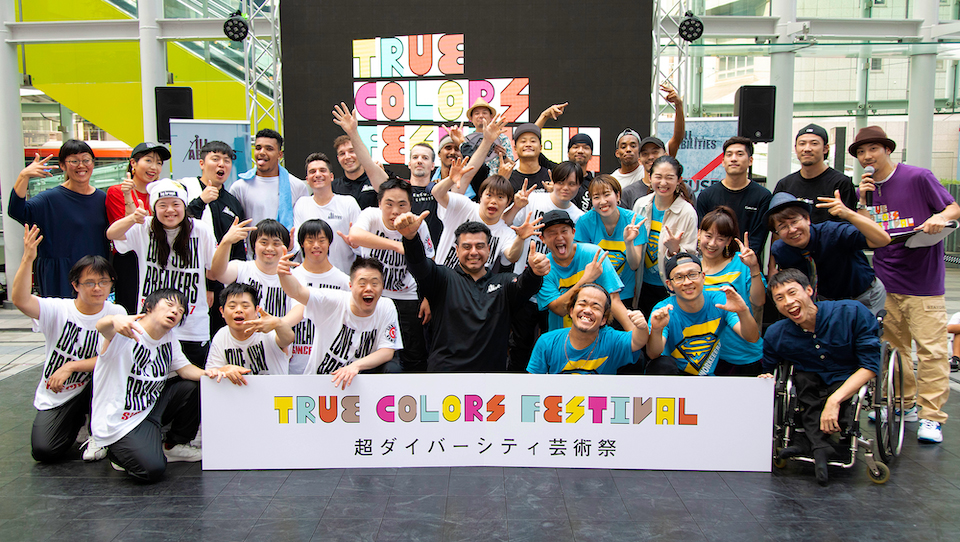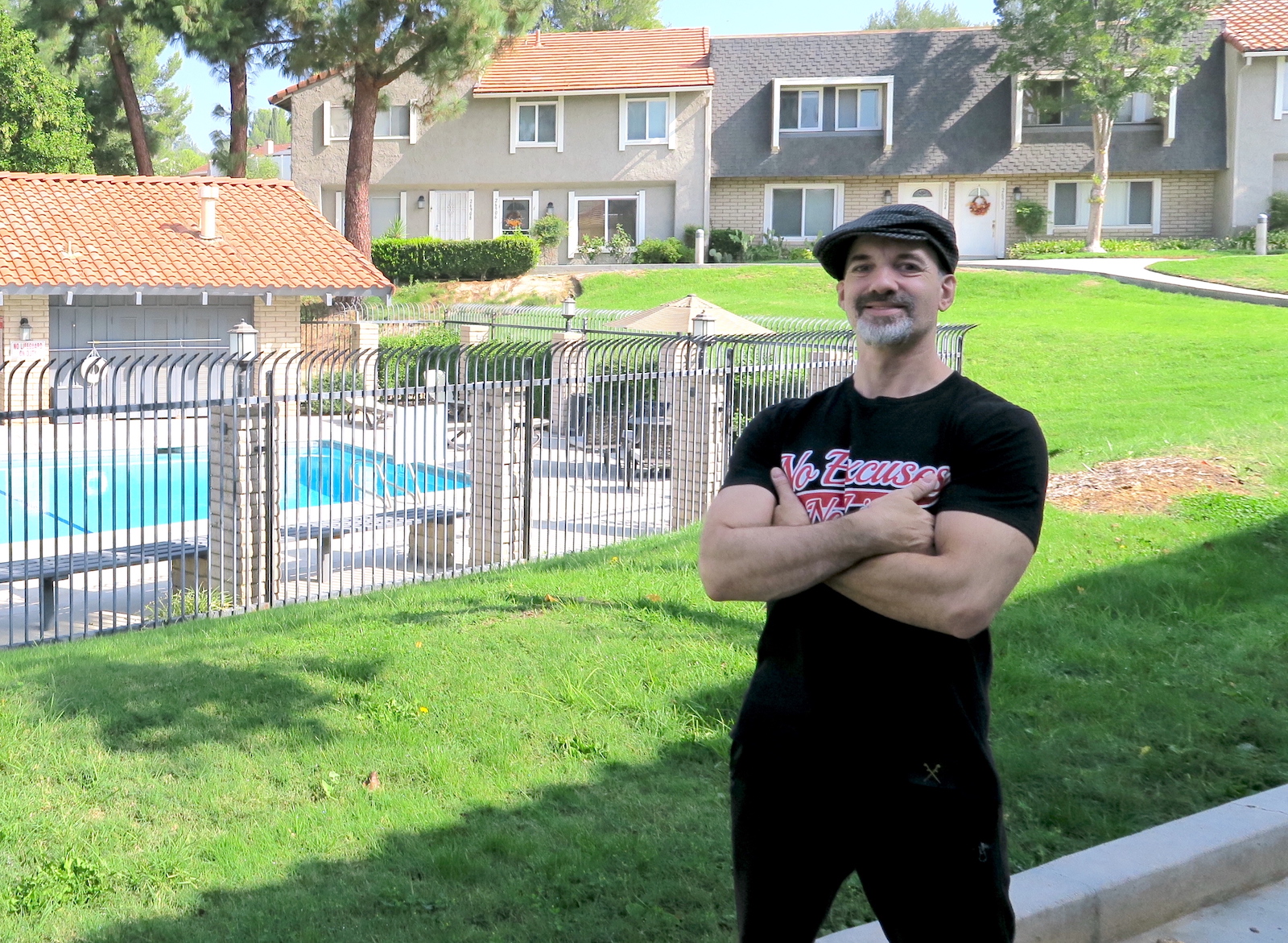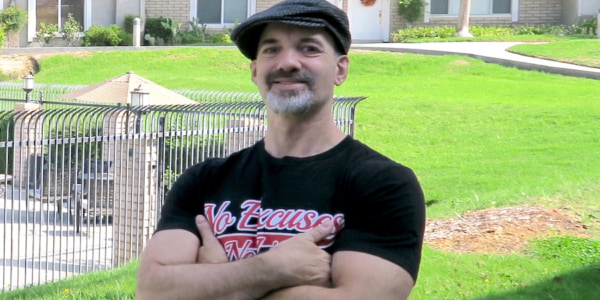Feeling isolated and frustrated while trying to figure out who I was
DIVERSITY IN THE ARTS TODAY(DA)
In a previous interview, you mentioned that you started dancing at the age of 15. How did it all start?
Kujo
When I was around 12-13 years old in middle school, I was trying to figure out who I was and who I wanted to be associated with. I was trying on different hats on, so to speak, like heavy metal and punk rock. I also tried skateboarding but was pretty bad at it. One thing that I was good at since I was a child was the monkey bars. I could do a lot of cool things like swing around on my knees without using my hands. These were similar to what people do in calisthenics nowadays.
DA
Is that how you got into hip hop and breakdancing?
Kujo
When I first got into hip hop in the late 80s, breakdancing wasn’t popular yet and I wasn’t good at the popular dance moves at that time. I actually got into it through some friends, who wanted to be in gangs.
This made my parents decide to move to Burbank from Pasadena to put me in a private high school there. They thought a wealthy Catholic school would be a safer environment for me. But it wasn’t. I was bullied because I was different – I was small and spoke funny due to my deafness. One day, I got into trouble because I brought a knife to school. I didn’t actually use it, but my father called the police and I was kicked out of school. My parents then put me in a juvenile detention facility for about a month.
DA
Wow, that seems a bit extreme.
Kujo
Yeah, I was offended and felt like they could have had a reasonable conversation with me instead of having someone else deal with it. It was unfortunate, but the lessons I learned there have helped me as I have become a mentor to many people. While I was there, I really thought about changing and wanted to be better. I was pretty angry from my hearing problems and being isolated.
DA
Would you describe yourself as a loner when you were a kid?
Kujo
Yeah, very isolated and very frustrated. I had speech impediments and a bad stutter because I couldn’t hear. Being introverted and shy made me not confident.
DA
Did you study in a regular classroom? Was there anything to help you with your speech?
Kujo
Except for a short period in elementary school, I always studied with everyone else and was not in a class with students with special needs. I had speech therapy throughout junior high school, but it felt pointless because it didn’t target my weaknesses in pronouncing certain sounds. For example, it’s hard for me to pronounce F and R and their conjunctions. I had to identify this myself and overcome it on my own.
DA
What happened after you left the facility? Did you go to another school?
Kujo
So, in the meeting room at this facility there were some hip hop magazines and I liked the clothes that were in the ads. It was this brand called Cross Colours, and I decided that when I get out and go to a new school, I was going to be a new version of myself wearing these baggy clothes.
DA
I remember that brand! They had really vivid colors.
Kujo
Yeah, I really liked how colorful they were. So, on my first day at my new school, I’m walking down the hallway with these clothes on, and I see a big group of kids, maybe eight or ten of them wearing the same brand. They look at me and walk towards me, and I can’t turn around. And this is LA in the early 90s, you know it was bad news when a group of kids wearing the same color clothes were coming at you, right? But when they walked up to me, one of them said: “Hey, do you dance?” I was shocked because I thought they were going to ask which gang I was in. I replied: “No, but I’d like to learn.” They said: “OK, hang out with us, we’ll teach you!” But they never taught me!
Exploring the boundaries of breakdancing and trying to be as different as possible to the point of controversy
DA
Haha. So, how did you learn how to dance? How did you develop your skills?
Kujo
I found out very quickly that in hip hop, you have to make up your own stuff. Someone would get really mad because you did one of their moves and it would get really physical. Hip hop was like that back then. I learned the hard way that you have to be different and to be original. You have to take advantage of the things that make you stand apart from others, and for me it was being athletic.
Breakdancing became a giant jigsaw puzzle with missing pieces, and it was up to me to provide some of those. That led to standing on my hands not vertically, but horizontally or oblique. Or I would walk with my hands in a unique way. I tried to be as different as possible to the point of controversy. For some people, I had gone too far and they said you’re not one of us anymore. But I wanted to explore these boundaries. How far is too far? Is it my problem that what I do is no longer accepted or is it their problem? I asked these kinds of questions also on message boards and social media, and this triggered many discussions.
DA
Did this change your relationship to breakdancing?
Kujo
No, because breakdancing has always been my main thing, but it has led to detours and parallel tracks in my career. Later, I studied modern dance and got a degree in kinesiology with an emphasis on dance. This led to starting my own dance company that ran for 10 years.
One person tried to criticize my work by saying I was doing “white person stuff with our dance” but that was about it. For me hip hop has always been very inclusive. My first dance crew was founded by two Persian brothers, and it was me with another Mexican dancer. I was always the only white person, but all that mattered was the quality of what you were doing. So that is how I see it.
I had to find other ways to listen to the music when I danced
DA
What would you say your relationship to music and sound is? What does hearing and listening mean to you?
Kujo
Early on, one thing I liked about hip hop was that the music sounded clear to me even when the lyrics were hard to hear. I cared about how it sounded, its musicality, and how unpredictable it could be. Later, a lot of hip hop became boring for me and that might be part of why I went into theater because I could pick different kinds of music that touched me in unique ways.
In terms of sound, I had to find other ways to listen, like relying on visual cues. For example, I would watch how people’s heads moved or how they were clapping their hands to the music to figure out where the beat was. But sometimes, especially during showcases, no one would be doing this, or I hadn’t talked with the DJ beforehand about which song to use, and they would play something that starts without a beat, like a long horn sound. These kinds of sounds just sound like a drone to me, and the audience didn’t have a beat to clap to.
DA
What do you do in these situations?
Kujo
I just say “screw it!” and make up a beat in my head to dance to. I won’t know if it matched until I’ve watched the video later. What’s interesting is that a lot of times they do match and it looks like I am hitting accents in response to the details in the music.
DA
Are you responding to the vibrations of the sounds?
Kujo
A lot of people like to say that they feel the vibrations of the music. For me, that’s rarely been the case. It depends on the music and on the venue. Some surfaces conduct vibrations better than others, and the music vibrates differently depending on the space. I can’t hear high pitched sounds, like the snare drum, but when the bass is too loud it makes my skull shake and I can’t detect a rhythm either.
Certain music really grabs me regardless of their genre. It might be a vibration or something mystical about it. I don’t really know what it is, but some sounds will force me to stop what I am doing or make the hair on the back of my neck stand up. It could be heavy metal or hip hop, or even folk music.
DA
That’s really interesting. As a member of Ill-Abilities you talk openly about being deaf, but when you were coming up as a dancer, was this something that you tried to hide because you didn’t want people to judge you through that?
Kujo
Yes, absolutely. I tried to hide this as much as I could. I just didn’t want it to be a thing. I was embarrassed about it. There were many times that I would be in a conversation with someone and I would respond to something that I thought they said but was incorrect, and that person would look at me funny or think that I was crazy. That became part of my personality, but it was also because I couldn’t hear and I didn’t understand what someone was saying.
I never presented myself as a deaf person. I don’t know how to sign and I can speak pretty normally. Dancing made me more confident as a person, so it was only a few people in the breakdancing community that knew that I am hard of hearing. It was with Ill-Abilities that I finally started to speak about it because that’s what we do. We are trying to spread awareness about what people with disabilities can do in hip hop. Some people were like, “I’ve known this guy for 20 years and I had no idea that he was deaf!”

Ill-Abilities’ performance at the TRUE COLORS FESTIVAL (2019) in Tokyo
Being the best version of yourself
DA
Was the process of joining Ill-Abilities and talking about it difficult for you?
Kujo
No, I had no issue with it whatsoever. It just made sense, and I had the opportunity to honestly speak about it. It was a great thing that also sparked a lot of great conversations with old friends, who had no idea and it changed their perception about me.
DA
In hip hop culture, and also in sports, there is a lot of competitiveness and there seems to be a lot of focus on winning. I imagine you were really competitive as you were trying to establish yourself too. But how do you feel about this now when you’re working with differently abled children and a diverse group of people with different motivations.
Kujo
Early on, I thought I had to win in all the battles to be the best B-boy. But a lot of positive comments I got from people was not that I was the best they’ve ever seen, but that I was the most unique, or that they have never seen anyone do things that I do. That made me think that I didn’t need to win competitions, but my role was to try to be the best version of myself. And by being the most unique and the most unorthodox, I could inspire other people to be the best version of themselves. Sure, I was very competitive and didn’t like losing, but I wanted to just express myself and not alway be in competitions. This was hard with my original dance crew because they always wanted to compete. However, when we did well in competitions, we were seen by more people and as a result I could inspire many more people to be as original as possible.
This aspect of competing with yourself carries over well to differently abled people. For example if you have lower body disability, like Lazylegz from our crew, you are not going to win many battles because footwork is such a critical component of breaking. It’s literally the foundation. But when you adapt it to your body, by default it becomes unorthodox and original because no one else can move like you. So it becomes not about conforming to an orthodox style but about competing with yourself on how much you can add creative ideas to make it even more unique. We bonded as a crew because we wanted to bring these thoughts and influences back into the breakdancing community.
Olympics as a unique and meaningful stage for breakdancing
DA
What is your take on breakdancing becoming more like a sport and being part of the Olympics?
Kujo
One of the important things that I focus my energy on other than Ill-Abilities is Breaking For Gold, which sets the pathway for dancers to compete in the Olympics. As the chair of the official committee, I oversee judges at qualifying matches in the U.S. and am also putting a lot of effort into judging national and international competitions. This is extremely important for me. We use a judging system called Trivium, which is meant to be more descriptive than prescriptive. We want to look at what you’re doing and be able to analyze it in the context. With this system you can compete and be a better dancer without necessarily having to tick all the boxes off a predetermined list of moves like footwork, power moves, top rock, etc.
DA
Would you say that the Olympic judging system is much more inclusive?
Kujo
I don’t think it’s intended to include dancers with disabilities, but it’s meant to be more broad in terms of descriptions and not relying on a checklist. For example, you can do extremely well without doing any footwork because we are looking at so many more things that you might be able to do better than your opponent. In that sense it is more inclusive. I think there is less antagonistic attitude toward breakdancing being part of the Olympics because people are seeing the events and feel that it’s different from other events. It’s not just about the prize or winning to move up from regional to international, but it actually feels like there is a different kind of significance.
DA
That sounds really exciting. It’s really inspiring to hear your journey as a dancer. Do you have advice for young people who are trying to find who they are and what their identity is?
Kujo
Mindset is everything. We limit ourselves with our own beliefs about ourselves. Some of these are imposed from outside, like our parents or our teachers telling us that we’re not going to be good at certain things. But you can’t let your own thoughts hold you back from your potential. This sounds silly but how you shift your mindset really does matter.
When he is not traveling the world with Ill-Abilities or judging breakdancing tournaments, Kujo is in the gym training or competing in powerlifting tournaments. His goal is to break the world record for his weight class.



